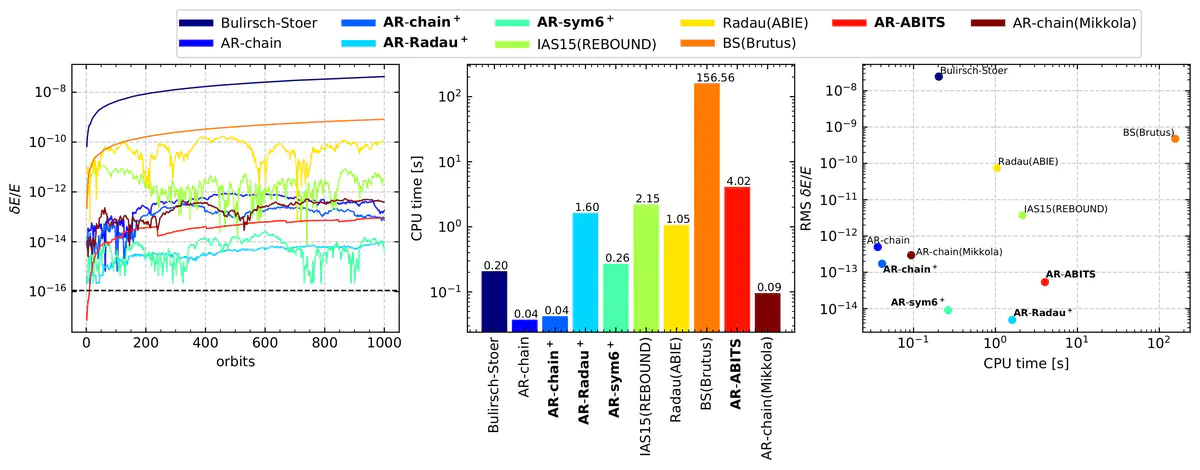SpaceHub: A high-performance gravity integration toolkit for few-body problems in astrophysics
 Relative energy error and performance tests on a two body system with extreme eccentricity e=0.9999 and semi-major axis a = 1 AU. The central object has a mass of 1 solar mass and the test particle has a mass of 1 earth mass. We integrate the system for 1000 orbits. This test is designed to quantify how the different integration methods are able to handle extremely eccentric orbits and very close pair-wise approaches between particles.
Relative energy error and performance tests on a two body system with extreme eccentricity e=0.9999 and semi-major axis a = 1 AU. The central object has a mass of 1 solar mass and the test particle has a mass of 1 earth mass. We integrate the system for 1000 orbits. This test is designed to quantify how the different integration methods are able to handle extremely eccentric orbits and very close pair-wise approaches between particles.
Type
Publication
mnras